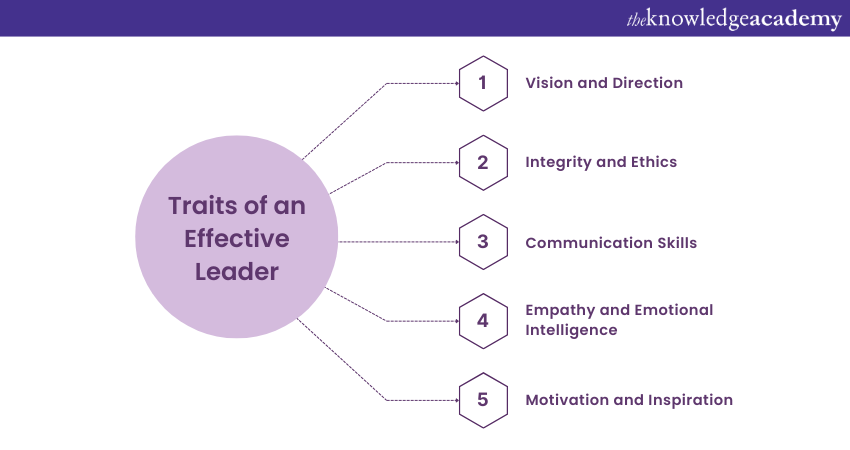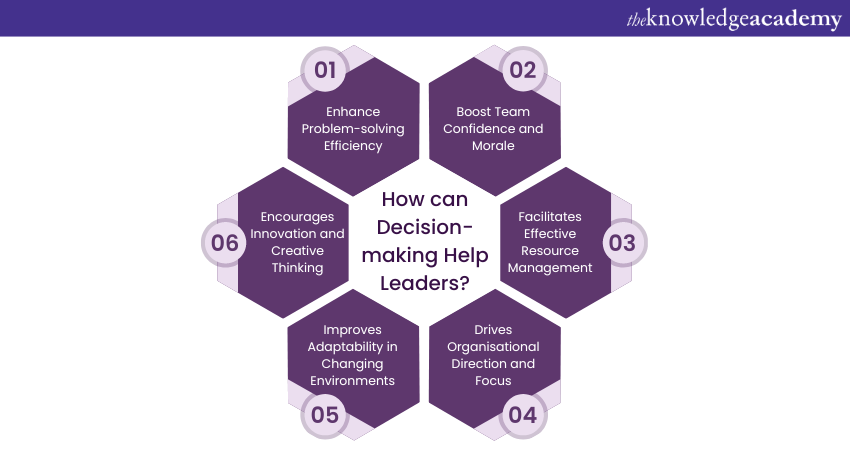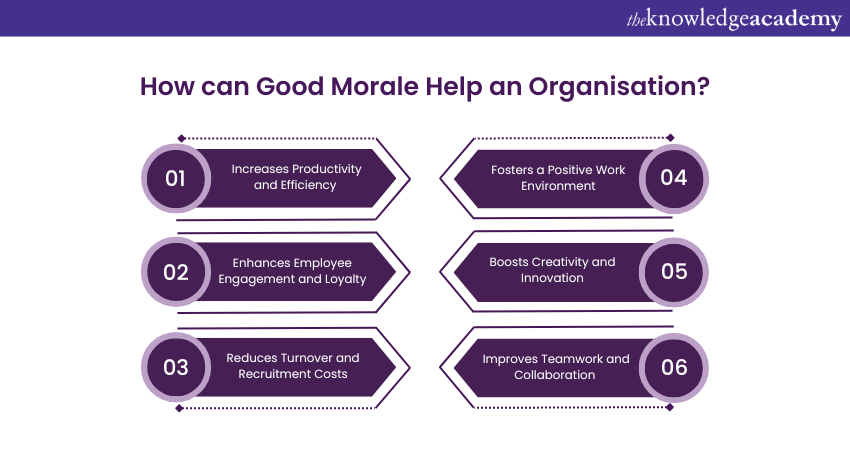We may not have the course you’re looking for. If you enquire or give us a call on + 1-866 272 8822 and speak to our training experts, we may still be able to help with your training requirements.
Training Outcomes Within Your Budget!
We ensure quality, budget-alignment, and timely delivery by our expert instructors.

You must have willing to work in a place, where team members are always motivated, projects flow seamlessly, and goals are consistently achieved? But do you know what makes this possible? The answer lies in the Importance of Leadership. By comprehending this, leaders can play a crucial role in overcoming challenges. Moreover, effective leadership not only guides teams towards achieving their goals but also fosters a positive and collaborative environment.
It is the cornerstone of any successful organisation, influencing everything from employee morale to overall productivity. In this blog, we will explore the multifaceted Importance of Leadership and how it shapes the workplace for the better.
Table of Contents
1) What is the Significance of Leadership?
2) How is Good Leadership Defined?
3) Importance of Leadership
4) How can Leaders Cultivate a Culture of Leadership Within Their Organisations?
5) Conclusion
What is the Significance of Leadership?
Effective management is crucial to many aspects of an organisation’s success, which is why businesses place significant value on leadership. One of the key roles of a leader is to provide a vision for the company. The leader articulates this vision and guides members of the organisation on how to achieve it.
While a business may have many individuals with diverse talents and capabilities, it is leadership that channels these efforts towards the realisation of a common goal. A good leader helps their organisation achieve excellence by motivating and encouraging teams, and by organising individual actions towards the progression of a shared objective.
How is Good Leadership Defined?
Good Leadership is characterised by a combination of qualities and actions that inspire and guide others towards achieving common goals. Here are five key aspects that define good leadership:

1) A good leader provides a clear vision and direction for the organisation. They articulate the goals and objectives, ensuring everyone understands the path forward.
2) Trust and respect are built through integrity and ethical behaviour. Leaders who consistently demonstrate honesty and strong moral principles create a positive and transparent environment.
3) Effective leaders communicate clearly and persuasively. They listen actively, provide constructive feedback, and ensure that their team members feel heard and valued.
4) Understanding and addressing the needs and emotions of team members is crucial. Leaders with high emotional intelligence can build strong relationships and foster a supportive work environment.
5) Inspiring and motivating the team is a key role of a leader. They encourage their team to strive for excellence and recognise their achievements, fostering a culture of continuous improvement.
Importance of Leadership
Effective Leadership fosters collaboration, encourages accountability, and facilitates decision-making, improving performance and organisational success. Leadership is the cornerstone of building resilient, adaptive, and high-performing teams in today's dynamic business environment. Now, let’s discover the Importance of Leadership, so that it's easy for you to understand it when you go into a position of authority:
1) Vision
Effective Leadership can help the organisation and the employees understand the vision of the company. Determining a proper vision is extremely important as it allows the individuals in the organisation to work towards the common goal.
Effective leaders not only formulate strategies, ideas, and methods to achieve the goals before the deadlines but also actively participate in the process. They are informed about any errors or possible errors and if there are any changes that are needed during the journey to achieve the goals.
2) Communication
A leader can only help the organisation and the teams if they are good at communication. Without communication, it can be challenging for Leaders to communicate their ideas, participate in team activity, and, most importantly, direct the employees towards the set goals. Communication is important in Leadership, as the Leaders not only have to communicate with their teams but also need to communicate across departments in the organisation.
Unlock your leadership potential by signing up for our Leadership Courses – register now!
Decision-making
Leadership is important for decision-making. It is because all the important decisions regarding projects and organisational goals are taken by the management, they should have an unwavering quality to take decisions quickly but correctly. Here's how decision-making skills can help leaders:

Individuals who possess this skill can be a good leader for the organisation. Leaders are faced with many situations where they need to think quickly and take the correct decision according to the situation. Individuals can hone this skill by weighing the organisation’s interests and profits without getting influenced by their own personal prejudices.
4) Passion
Leadership also involves showing passion towards work. Whether it be in a position of Leadership or as an employee. An effective leader can be identified with their strong passion towards their work and their organisation. Being passionate can help increase your emotional intelligence and be empathic towards your colleagues and team members. It is also an important skill to possess, as it can help you to invigorate the same passion and inspire your team to be dedicated towards their work.
5) Guidance
Importance of Leadership lies in guiding people/employees. The idea is to direct or guide individuals, teams and organisations towards the correct path. Clearly communicating with your team members and colleagues help them to understand their duties and responsibilities towards the organisational goals. Most importantly a good leader is also known for the impact they put on the employees’ personal life. It is also the responsibility of the Leader to correctly guide the employer in their personal life, thereby helping the employees have an all-round development.
Take the next step in Leadership and Management, with our Leadership and Management Course!
6) Confidence
As the saying goes, “Confidence is key”. Whether you are a leader or an employee, you should have confidence in everything you do. Especially if you are in a position of authority, you have to be confident in your decisions and the way you conduct yourself.
Remember you are in a position where your team, colleagues, and junior employees seek inspiration from you. Showing them your ability to solve any situation calmly, make correct decisions without being partial, and, most importantly, provide positive feedback to them can help your team be more proactive in whatever work they do.
7) Commitment
Influential leaders are dedicated to the success of their organisation and its employees. They stay focused on their long-term objectives and do not let temporary setbacks diminish their resolve. When faced with challenges, effective leaders inspire their teams and help them look beyond the obstacles hindering their progress towards the common goal.
8) Morale
If your question is What Differentiates a Leader and a Boss, then you can easily understand the difference by observing how those individuals interact with their teams. A good leader always tries to maintain a high morale for the employees. Recognising the efforts of the employees and awarding them for their work inspires them and keeps them motivated.
This also fosters a positive work culture in the organisation. A high employee morale motivates them to achieve more for the organisation and improve their professional life. This is where you can see the Importance of Leadership truly unfolding as there is an increase in employee satisfaction and performance. Here's a detailed explanation:

9) Growth
The finest leaders cultivate an environment where individuals can thrive and are receptive to new ideas and methods for achieving results, while also being flexible enough to acknowledge their mistakes. Successful leaders encourage their subordinates to offer suggestions for improving work processes and reward excellence, thereby fostering creativity and loyalty.
Become the leader your organisation needs – join our Leadership and Management Course now!
How can Leaders Cultivate a Culture of Leadership Within Their Organisations?
Creating a leadership culture within an organisation is crucial for fostering innovation, empowering employees, and driving sustainable growth. By embracing leadership as a collective responsibility, leaders can inspire every individual to contribute to the organisation’s success, enhancing performance, innovation, and a sense of belonging. Here are several strategies to nurture such a culture:
a) Lead by Example: Leaders must embody the qualities they wish to instil in their teams. Demonstrating integrity, accountability, and resilience sets a precedent for others to follow, inspiring a Leadership culture from the top down.
b) Empowerment and Trust: Encourage autonomy and decision-making among team members. Empowered employees feel valued and heard and are more likely to take responsibility, innovate, and contribute meaningfully to the organisation's goals.
c) Clear Communication: Effective communication is paramount in fostering a Leadership culture. Leaders should clearly articulate the organisation's vision, values, and expectations, ensuring alignment and understanding at all levels.
d) Promote Learning and Development: Provide opportunities for continuous learning and skill development. Investing in employee growth enhances individual capabilities and cultivates a culture of curiosity, adaptability, and excellence.
e) Recognition and Feedback: Acknowledge and celebrate achievements while providing constructive feedback. Recognising employees' contributions fosters a sense of ownership and motivates them to strive for excellence, contributing to a positive and supportive work environment.
f) Encourage Collaboration: Implement a collaborative environment where diverse perspectives are valued, and teamwork is encouraged. Collaboration fuels innovation, creativity, and problem-solving, driving the organisation forward collectively.
g) Embrace Change and Adaptability: Encourage agility and resilience in the face of change. Leaders should demonstrate openness to new ideas, embrace uncertainty, and encourage experimentation, fostering a culture that thrives on innovation and continuous improvement.
h) Promote Diversity and Inclusion: Embrace diversity and inclusion in all aspects of the organisation. A diverse workforce brings varied perspectives and experiences, enriching decision-making and driving innovation.
i) Lead with Purpose: Align organisational goals with a greater purpose beyond profit. Leaders who articulate a compelling vision that resonates with employees' values inspire commitment and engagement, fostering a sense of meaning and fulfilment in their work.
j) Support and Mentorship: Provide mentorship and support to emerging leaders within the organisation. Investing in Leadership development cultivates a pipeline of future leaders and ensures continuity in driving the organisation's mission forward.
Conclusion
In conclusion, the Importance of Leadership in the workplace cannot be overstated. Effective leadership drives innovation and aligns individual efforts towards common goals. By cultivating strong Leadership Skills, organisations can enhance employee engagement and boost productivity.
Transform your approach to Leadership and team management – register for our Leadership Skills Training.
Frequently Asked Questions

Effective Leadership holds exceptional importance in industries such as healthcare, technology, and finance, where complex operations and high-stakes decision-making are prevalent. Strong Leadership ensures efficient resource allocation and strategic direction, which is crucial for navigating dynamic challenges.

Aspiring leaders can access resources through Leadership sessions, online courses, and mentorship. Platforms like LinkedIn Learning and professional workshops offer valuable insights, while mentorship provides real-world guidance for Leadership development.

The Knowledge Academy enhances global learning with a vast selection of over 30,000 online courses, accessible in more than 490 locations across 220 countries. This expansive reach ensures accessibility and convenience for learners worldwide.
Our diverse Online Course Catalogue covers 19 essential categories, complemented by a wealth of free educational Online Resources. These resources include up-to-date News, informative Blogs, tutorial videos, interactive webinars, and collections of Interview Questions. Furthermore, professionals looking for personalised education can take advantage of TKA's Customisable Course Bundles, crafted to enrich and optimise the learning journey.

The Knowledge Academy's Knowledge Pass, a flexible prepaid voucher system, offers the freedom to join in courses over a 12-month period. Start your limitless learning adventure with us and embrace education that knows no bounds.

Discover an array of Leadership Courses at The Knowledge Academy, featuring specialised Organisational Skills, Emotional Intelligence Training, Time Management Training, etc. Designed for different skill levels, our courses provide the necessary technical expertise to learn Team Leader Qualities.
Whether you're starting out or looking to upgrade your skills, immerse yourself in our Business Skills Blogs for further understanding and expertise. Embark on a journey with us to elevate your Personal Development Skills!
Upcoming Business Skills Resources Batches & Dates
Date
 Successful People Management and Team Leadership
Successful People Management and Team Leadership
Fri 10th Jan 2025
Fri 28th Feb 2025
Fri 4th Apr 2025
Fri 16th May 2025
Fri 11th Jul 2025
Fri 19th Sep 2025
Fri 21st Nov 2025







 Top Rated Course
Top Rated Course



 If you wish to make any changes to your course, please
If you wish to make any changes to your course, please


